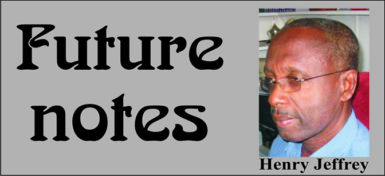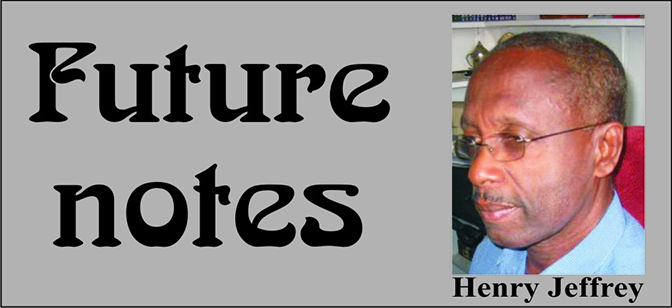The present political impasse has yet again presented opposition leader Bharrat Jagdeo and the PPP/C with an opportunity to reposition the party as a positive national rather than communal institution. With hindsight, the decision-making space was too close, i.e. the party was still smarting from its loss of Parliament and the diminution of its ethnic political positioning to properly assess and take the opportunity its 2011 loss presented for it to contribute to an historic realignment of Guyanese politics. Instead, they chose to go it alone and the country was as divided as ever when they were finally forced from government in 2015. That electoral bruising should have healed by now and it would constitute a severe deficit of leadership if Mr. Jagdeo has not yet come to understand that his party needs to present the country 
Mr. Jagdeo’s call for radical mobilisation and non-cooperation over the president’s unilateral selection of the chairperson of the Guyana Elections Commission is understandable. However, to be successful, such an approach requires more than globetrotting and parroting Cheddi Jagan’s old mantra of democracy and majority rule. He is not Cheddi Jagan and is certainly not in the position that Cheddi Jagan was prior to 1992. Although they may not have voted for him, as demonstrated by the widespread participation at his funeral, Cheddi Jagan left many – Africans included – with the belief that he was essentially an incorruptible and good person who was hard done by Forbes Burnham and international capital. Juxtaposed against the PNC, Cheddi Jagan had the stature to sell a new vision of democracy, openness, inclusiveness and progress. The opposite can now safely be said of Mr. Jagdeo and the PPP/C.
Mr. Jagdeo had over two terms in office, by the end of which the vast majority of Guyanese did not think his government cared for them. This became so obvious to him that, in this already highly ethnically polarized society, in 2015 he still had to conduct an extremely divisive campaign to scare his own supporters into voting for him. To too many people, Mr. Jagdeo is now the personification of a past and future autocrat under whose watch even the aspiration of good governance was abandoned and corruption and ethnic discrimination were rife. As a result, a large and strategic proportion of the population has come to believe that democracy – majority rule – under the PPP/C would never work for them and are now prepared to subvert it if there is but a hint that the PPP/C, particularly with Mr. Jagdeo at its helm, will return to government.
As I stated last week, political analysis is nothing if it does not attempt to provide viable solutions based on real conditions, and it will certainly not help to solve our problems by encouraging or turning a blind eye to the subterfuges of the political elites, i.e. voluntarily becoming part of the problem. Hurtful and difficult as it may be, what I have said above constitutes the reality that the PPP/C must accept and try to couple with the overwhelming support it still has among its traditional supporters to create and sell a new and dynamic political arrangement acceptable to all. Without such a conceptual construct in which to lodge its quarrel with the government, i.e. without being able to communicate a novel and exciting future, important stakeholders will only politely listen as the party scampers around referencing the need to protect ‘democracy’. Sensitive minds hold far more sophisticated notions of democracy and its many expressions.
Indeed, the recent election of Donald Trump to the presidency of the United States of America provides some indication of a manner of conceptualising the way forward. Donald Trump is now the undisputed president although he lost the popular vote by close to 3 million to Hillary Clinton in what is still considered one of the leading democracies in the world with a political constitution that is revered nationally and internationally. This is a sufficient suggestion that the executive, i.e. the government, need not be chosen by a majority vote for a country to be considered a democracy. There could be many as important issues at play when people come to consider how to structure the manner in which they should be governed.
So why did the framers of the US constitution deliberately create a system that allows the possibility of the president being elected by a minority? William C. Kimberling, Deputy Director Federal Elections Commission, outlined what the founders believed they had to solve. The new state was composed of thirteen large and small states jealous of their own rights and powers and suspicious of any central national government. The population at the time was only about 4 million people barely connected by transportation and spread sporadically around the huge country, making national campaigns impractical. The elite was suspicious of political parties thinking them ‘mischievous if not downright evil’ and thus, the people had to be protected from them. Furthermore, very much in keeping with Western tradition, it was thought that gentlemen should not campaign for public office: ‘The office should seek the man, the man should not seek the office’ (https://uselectionatlas.org/INFORMATION/INFORMATION/ electcollege_history.php
According to Kimberling, the question was: ‘How, then, to choose a president without political parties, without national campaigns, and without upsetting the carefully designed balance between the presidency and the Congress on one hand and between the States and the federal government on the other?’ More specifically and relevant, it should be noted that the idea that the president should be elected by majority rule was considered and rejected on the grounds that: ‘At worst, no president would emerge with a popular majority sufficient to govern the whole country. At best, the choice of president would always be decided by the largest, most populous States with little regard for the smaller ones’, and this was unacceptable.
While there is a need for the people to elect the government of their choice, the requirement of majority rule should not necessarily trump other important considerations. Together with the physical structural problems, to devise an acceptable political system the framers of the US constitution had to accommodate political jealousy, parochialism, ideological, class and ethnic interests, etc. Individually or collectively they might have berated and denounced some or all of these as unwanted constraints, but the secret of their success was that they did not stop there but proceeded to create a political framework that allowed these influences to express themselves in a manner not overly detrimental to the national interest. When on one occasion the latter occurred, it led to a destructive civil war.
The PPP/C should similarly lay out the major constraints it believes Guyana now faces in forming a government acceptable to the vast majority of our people and then devise and sell a progressive political vision and programme. Its recent experiment has shown and it should therefore realise what the American founding fathers did over two centuries ago, namely that, particularly in our situation, even winning by a small majority will not suffice. Not only does it severely limit legitimacy but it engenders the fear of losing, and as might currently be the case, the determination to win at all costs. Simply being shrill and lambasting the government as undemocratic at numerous meetings and press conferences, etc. largely only satisfies fellow travelers, and at the end of the second decade of the 21st century suggests a massive deficit in leadership.






